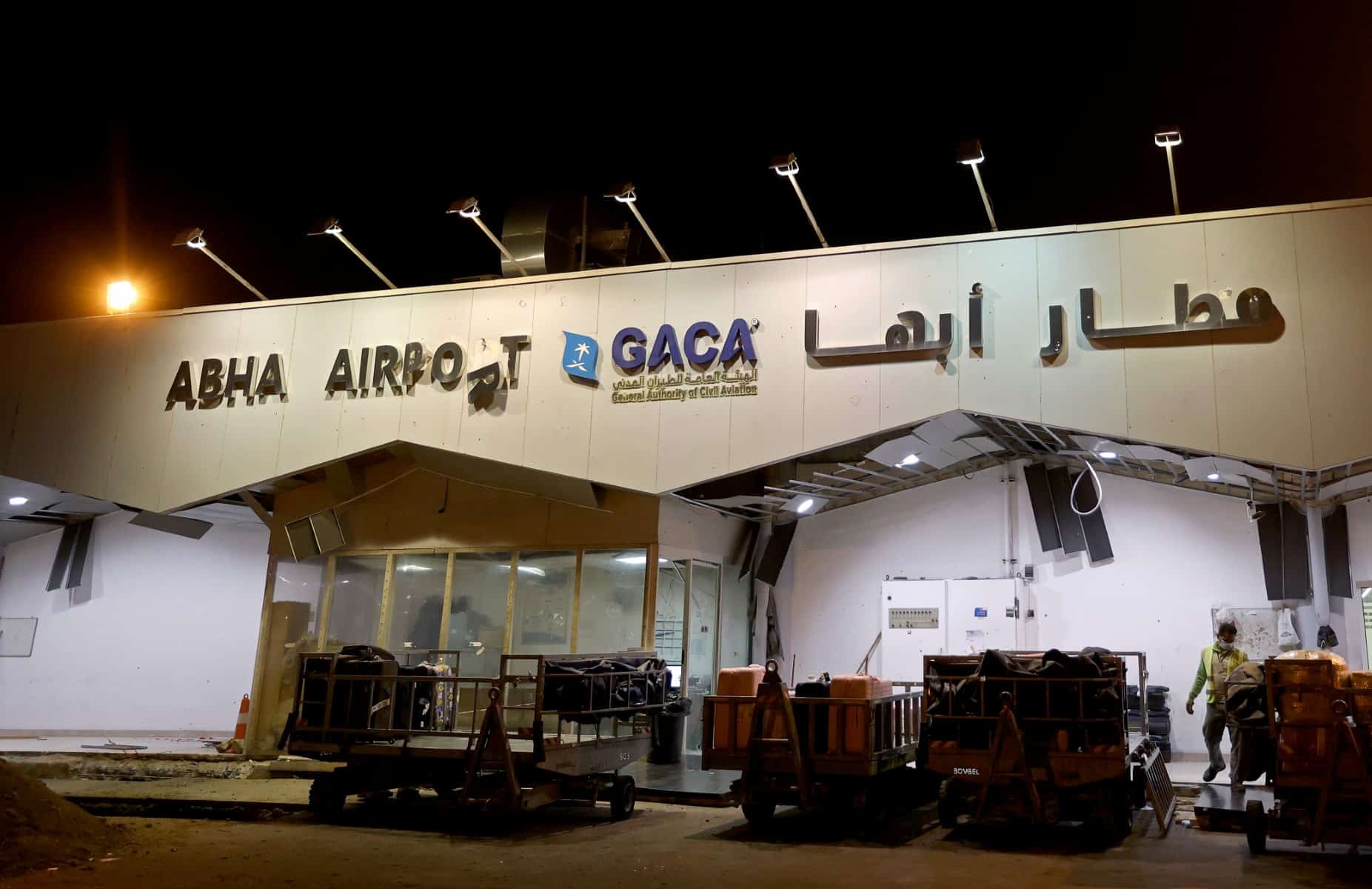Twelve people were injured by falling debris on Thursday when the Saudi military blew up a Yemeni rebel drone targeting an airport close to the border, officials said.
Fragments fell to the ground after the interception of the drone over Abha International Airport, which has previously been targeted in similar assaults by the Houthi rebels.
The Houthis claimed responsibility for the attack in a tweet, saying they had targeted an airport “used for military action against Yemen” and warning citizens to “stay away” from such sites.
The Iran-backed insurgents, fighting a Saudi-led coalition since 2015, have frequently launched drone attacks at Saudi targets including airports and oil installations.
In recent months, they have also targeted fellow coalition member, the United Arab Emirates, with deadly cross-border attacks for the first time, after suffering a series of battlefield defeats at the hands of UAE-trained pro-government forces.
“Saudi defense forces destroyed a drone launched towards Abha International Airport,” the official Saudi Press Agency said in a tweet.
“We will take firm operational action to respond to the threat to civilian airports and travelers,” it added.
SPA initially reported that four people — passengers and ground staff — were injured.
They later said that “12 civilians of various nationalities” were hurt when the drone was intercepted and destroyed.
They included citizens of Bangladesh, India, Nepal, the Philippines and Sri Lanka as well as two Saudis.
‘War crime’
“As a result of the interception process, some shrapnel of the drone was scattered after its interception inside the internal perimeter of the airport,” coalition spokesman Brigadier General Turki al-Maliki told SPA.
He said Abha was a “civilian airport that is protected under international humanitarian law” and accused the rebels of a “war crime”.
Abha lies in the kingdom’s southwestern mountains and is popular, particularly during summer, with Saudis and expatriates desperate to escape the scorching heat.
Border provinces of Saudi Arabia have come under frequent drone or missile attack by the rebels in what the Houthis say is retaliation for a deadly bombing campaign carried out by coalition aircraft against rebel-held areas.
Most have been safely intercepted by Saudi air defenses but in late December an attack on Jizan province on the Red Sea coast saw two people killed and seven wounded.
In December, the coalition said the Houthis had fired more than 400 ballistic missiles and launched over 850 attack drones at Saudi Arabia in the past seven years, killing a total of 59 civilians.
The neighboring UAE has been on alert since a drone and missile attack killed three oil workers in Abu Dhabi on January 17.
Authorities have since thwarted three similar attacks.
The January 17 attack was the first deadly assault on the UAE claimed by the Houthis, opening a new phase in the Yemeni war and puncturing the Gulf state’s image as a regional safe haven.
The UAE-trained Giants Brigades has this year inflicted heavy losses on the Houthi rebels, disrupting their efforts to seize the strategic city of Marib, the government’s last major stronghold in the rebel-dominated north.
Hundreds of thousands of people have been killed directly or indirectly in the conflict in Yemen, while millions have been displaced in what the UN calls the world’s biggest humanitarian crisis.
On Thursday the Norwegian Refugee Council said civilian deaths and injuries in Yemen’s war have almost doubled since UN human rights monitors were controversially removed in October.
“The removal of this crucial human rights investigative body took us back to unchecked, horrific violations,” the NGO’s country director Erin Hutchinson said in a statement.

